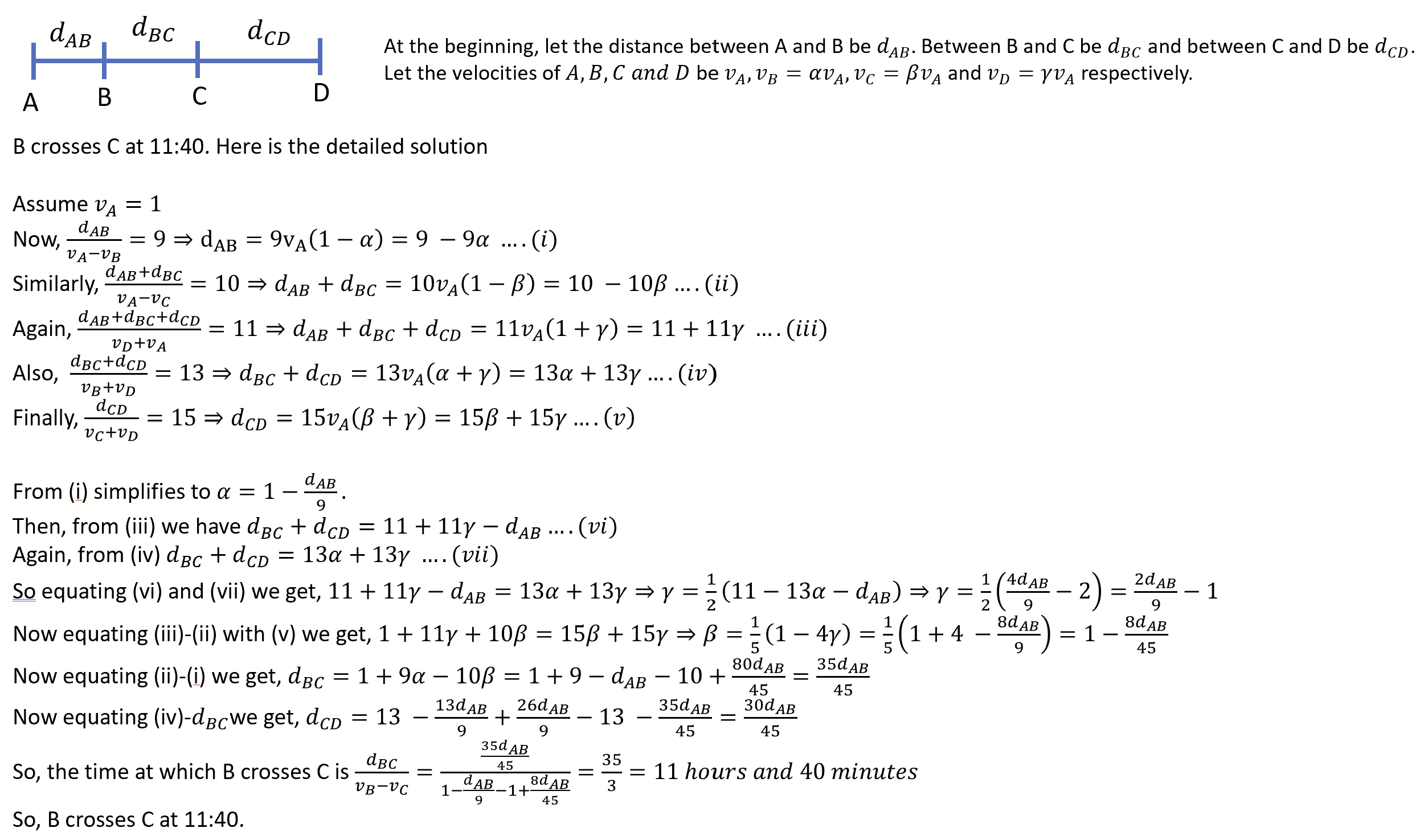Four cars travel at constant speed along a road.
Three of them (A, B and C) travel in one direction, and the fourth, D, in the opposite direction.
Car A passes B and C respectively at 9:00h and 10:00h, and crosses car D at 11:00h.
Car D crosses car B and car C respectively at 13:00h and 15:00h.
At what time did car B pass car C?
Solution to the Problem:
Car B passed car C at 11:40hConsider the speeds as relative to car D (i.e., taking car D to be the "stationary" point of reference). Let these speeds be S(a), S(b) and S(c).
Car C takes 5 hours from its being with car A to its passing car D, while car A takes only one hour from that event, so S(a) = S(c) * 5
Car B takes 4 hours from its being with car A to its passing car D, while car A takes only two hours,
so S(a) = S(b) * 2
Therefore
Sb = Sc * 5/2
The positions of cars C and B at a given time are given by
P(c)= S(c) * (15 - t) as C meets D at 15 hours.
P(b) = S(b) * (13 - t) as B meets D at 13 hours.
We need the time that P(b) = P(c), so that Pb/Pc = 1, so we can divide one equation by the other:
1 = (5/2) * (13-t)/(15-t)
Solving the above equation, we have:
t = 11 + 2/3
Consequently, car B passed car C at 11+ (2/3*60)h or, 11:40h
Colin Bowey took a more visual approach to the problem:

Here is Ritwik Chaudhuri's solution:

Click here for Dr. Hari Kishan's solution
Correctly solved by:
| 1. Colin (Yowie) Bowey | Beechworth, Victoria, Australia |
| 2. Ritwik Chaudhuri | Santiniketan, West Bengal, India |
| 3. Kenneth Bennett | Richmond, Virginia |
| 4. Dr. Hari Kishan |
D.N. College, Meerut, Uttar Pradesh, India |